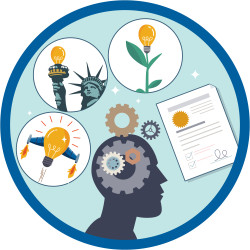Recently, the Senate Judiciary Committee of the 118th Congress convened to discuss the Patent Eligibility Restoration Act (PERA), introduced in June 2023. Sponsored by Senator Thomas Tillis (R-NC) and Senator Chris Coons (D-DE), this bill aims to amend the United States Code regarding patent subject matter eligibility.

(Image from: USPTO)
Need for Clarity in Patent Law
The bill highlights that “specific circumstances have led to extensive confusion and lack of consistency,” emphasizing the need for amendments to Title 35 of the United States Code. The core issue involves certain inventions being deemed ineligible for patent protection due to varying interpretations. This confusion escalated following several Supreme Court rulings, such as Mayo Collaborative Services v. Prometheus Laboratories, Inc., 566 U.S. 66 (2012), and Alice Corp. v. CLS Bank International, 573 U.S. 208 (2014). These cases have made it more challenging to obtain patents and provided grounds for invalidating issued patents in specific sectors.
Current judicial interpretation considers laws of nature, natural phenomena, and abstract ideas ineligible for patent protection. These exceptions significantly impact inventions in medical diagnostics and computer applications. Critics argue that conflicting rulings advantage other countries that allow patents in areas previously deemed ineligible.
Proposed Amendments Under PERA
The current exceptions in the U.S. Code would change under PERA. The bill specifies that the following inventions would remain ineligible for patent protection:
- Mathematical formulas not part of an invention
- Mental processes performed solely in a human’s mind
- Unmodified human genes existing in the human body
- Unmodified natural materials found in nature
- Processes that are primarily economic, financial, business, social, cultural, or artistic
Concerns Raised
While PERA aims to stimulate American innovation and reduce confusion in interpretations, the ACLU raises concerns about potential dangers. They argue that “the Act would allow corporations and other entities to patent laws of nature and products of nature, including naturally occurring genes.” This could grant them exclusive rights over research, development, and analysis, leading to higher healthcare costs, restricted patient access to health information, and new hurdles in developing technologies to combat cancer and pandemics.
Want to learn more about filing your own patent application? Need assistance? Feel free to call or email us at (713) 364-4796 or admin@madan-law.com.
